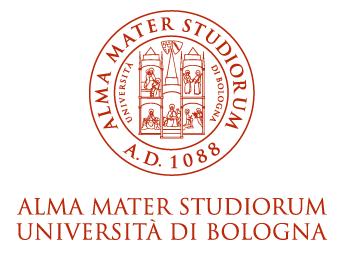Choosing the subject and the rules on preparing the dissertation for the final examination.
To graduate, you must propose a dissertation subject to a Supervisor, who has to be a teacher/reasearcher of the DIFA (Department of Physics and Astronomy) or a teacher on contract within your Degree Programme, who will assess the validity of your proposal in relation to your study plan.
You can also choose one of the proposed thesis topics, presented during the Thesis Day meeting (slides available in the column on the right).
The thesis must be written in English. We recommend the following dissertation structure:
If you wish to use the University seal, the title page must follow the general instructions reported in the "Use of the University seal in theses and final papers" page.
About a week before the graduation day you will find the name of your opponent (controrelatore) in the details of your graduation application on Studenti Online. Get in touch with her/him as soon as possible to schedule an interview, during which you can present and discuss your thesis work.
In order to discuss your dissertation you can use a PDF presentation.
The place and time of the graduation day will be indicated as soon as possible in the details of your graduation application on Studenti Online.
The discussion in front of the Graduation Board will last for max. 18 minutes. The presentation has to be a coherent summary of your written dissertation. We recommend the use of tables and graphs.
The Board will assess the candidate's overall performance – dissertation, curriculum, time taken to complete their studies, transfers from another University or another programme – applying specific rules.
The Board expresses its assessment with a grade out of one hundred and ten (110). The exam is deemed to be passed with a minimum grade of 66/110 and a maximum grade of 110/110. In the case of granting a maximum grade, the Board may also grant honours (lode) by unanimous decision.
The supervisor and the opponent will each provide a written comment on the candidate's work, together with a qualitative evaluation (Excellent, Very Good, Good, Decent, Acceptable).
See the information on how to calculate the average score based on your study programme
The Board will use the weighted average of your marks multiplied by 3.4 and they will add a maximum of 15 points according to (a) the supervisor's evaluation, (b) the opponent's evaluation, (c) the Board's evaluation of your dissertation. The points are assigned as follows: Excellent: 13-15 points; Very Good: 10-12 points; Good: 7-9 points; Decent: 4-6 points; Acceptable: 0-3 points.
The honours (lode), which are grant by the Board's unanimous decision, are proposed by the Supervisor (more often) or by one of the Board's members. In order to propose the honours (lode), an average equal to at least 28/30 and an "Excellent" or "Very Good" evaluation by both supervisor and opponent are required.
The Final Examination Board, having taken into consideration the dissertation discussion and your curriculum, will decide the final grade, which will be proclaimed after the discussion.
The Graduation Board members are the following professors: Moscardini (President), Brighenti, Gitti, Nipoti, Vignali, Dallacasa, Mucciarelli; all the other professors and researchers within the Degree Programme can be substitute members of the Board.
[ .doc 40Kb ]
How can we help you: Information on the learning outcomes and contents of a degree programme.
Contact person's name for the office Prof. Carlo Nipoti
E-mail carlo.nipoti@unibo.it
How can we help you: Notices about logistics and organisational aspects concerning your degree programme, general information on admissions, exams, course timetable, study plan and graduation.
E-mail scienzecittadella.international@unibo.it
Address via Selmi 3, Bologna 40126 Orario apertura al pubblico
